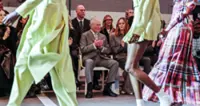Has fashion become a game of "dupes"? You might think so, considering that younger shoppers are no longer ashamed to wear low-cost variations of luxury clothes and accessories – on the contrary, they're proud of it!
A new study reports that Gen Zs and Millennials now prefer to buy these "copies" than high-end luxury items, and that price is not the only reason.





